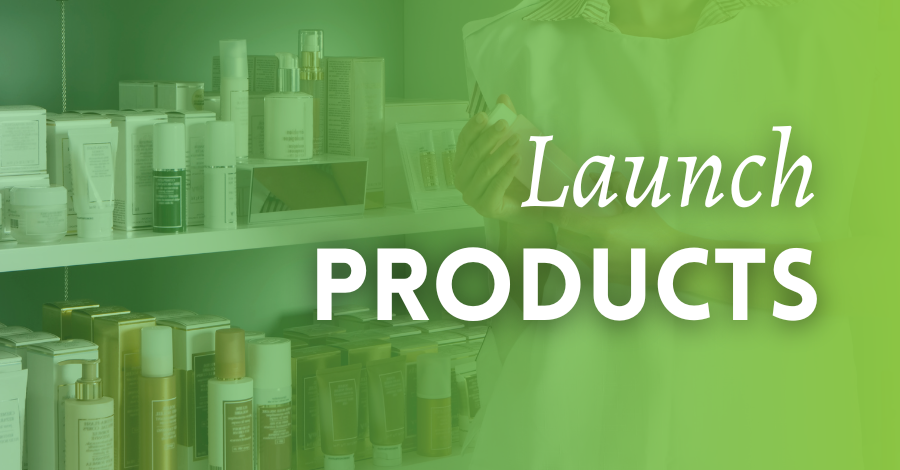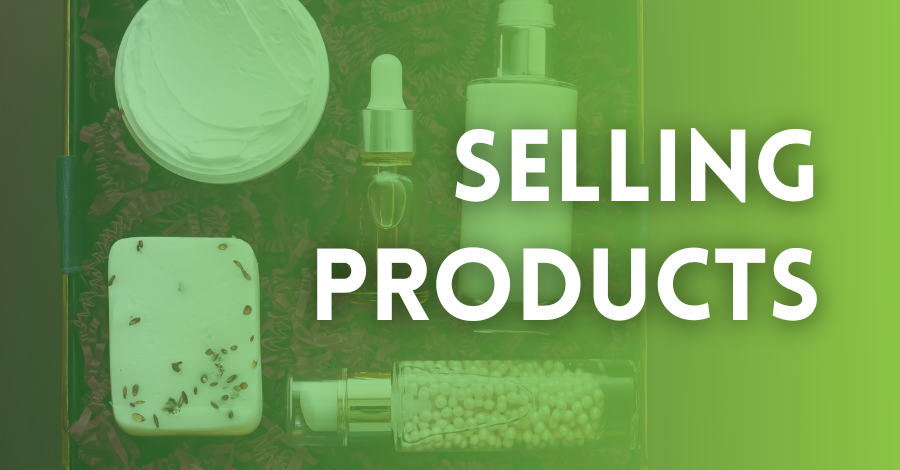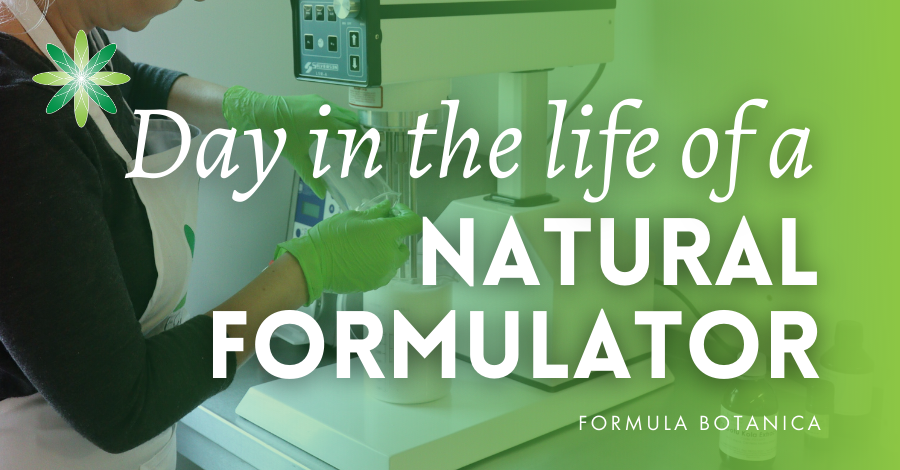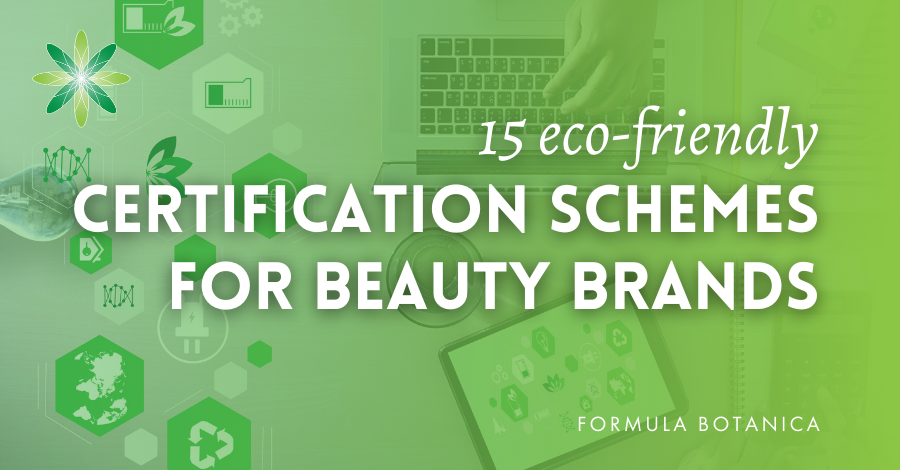If you are planning to start a cosmetics line, then this guide is essential reading whether you want to launch a side hustle or a global beauty brand.
For several years, we have been running a questionnaire among Formula Botanica blog readers about how they see themselves setting up their indie beauty businesses. Over this time, we have gathered a goldmine of information about the dreams, ideas and plans of over 2,000 beauty entrepreneurs. In this article, we share and comment on those findings to guide your decision-making as an indie beauty founder.
We love the fact that so many of our respondents – perhaps yourself among them – are keen to do everything themselves in their beauty start-up. Our graduate gallery now showcases over 300 Formula Botanica student brands, and the majority of those founders bootstrapped their businesses, relying on their own time and money to get started. However, there are some aspects you may need help with.
We take you through the key questions to ask yourself before you start a cosmetics line. Thinking them through will give you greater insight into what it takes to start a brand and help you plan for success – as well as preempt the problems that arise.
Do you want to start a cosmetics line? Read the @FormulaBotanica 7 tips on what you need to know whether working a side hustle or taking a beauty brand global. #startabeautybrand #naturalformulator #sidehustle Share on X1. Will you outsource any tasks in your business?
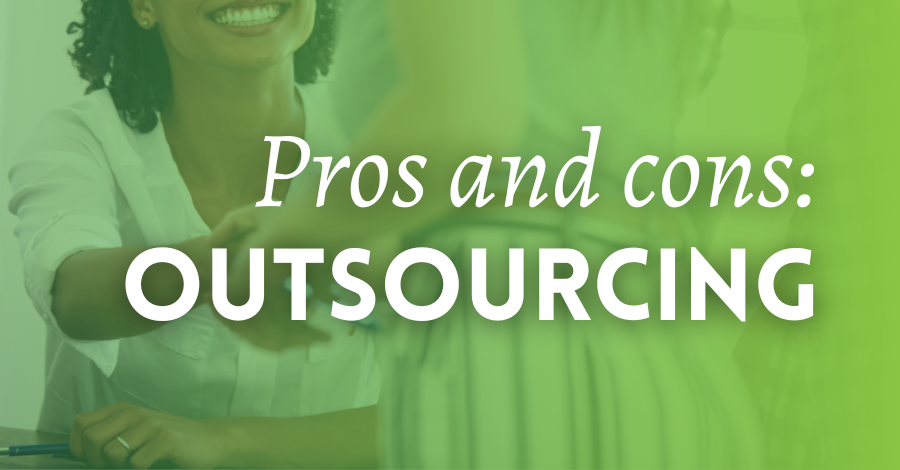
Clearly, the less you outsource, the fewer upfront expenses you may have. But, weighed against doing it all yourself are the savings you can make in time spent getting to market and in not needing to teach yourself on the job about aspects you are less skilled in, such as brand design and social media marketing.
Every beauty entrepreneur’s circumstances are different, so there is no right choice to make about outsourcing. However, if you make a list of the skills you need to get your formulations manufactured and retail-ready, you will inevitably realise that some things are best outsourced and left to experts while you get on with a more important to-do list and better utilise your own skill set.
We have seen all approaches among our graduate brand founders. Learn from their experiences in these articles:
Start a small beauty business at home.
Start a beauty brand on a small budget.
If you are using specific and/or less common ingredients, you may find you need partners to help process them and manufacture your products. Let’s give you an example: upcycled ingredients. If you wish to source byproduct waste locally, such as coffee grounds or stone fruit scrub particles, you may need to work with third parties who can process the raw materials into cosmetic-grade ingredients. As you can see, your formulations, let alone your business’ ethos and mission, are likely to dictate your decisions about outsourcing.
Another example is organic certification. Can you meet the stringent demands required by organic certification bodies if you manufacture in a home lab?
Deciding to outsource or not is therefore far from a simple yes or no decision, and your response now may change later on in business as you expand and need greater manufacturing capacity. You will need to think through a great deal of your prospective business – ideally writing a business plan – before deciding on outsourcing or not. There will be all sorts of partners you may need beyond simply hiring a graphic designer. See also our guide to the legal aspects of outsourcing:
11-point checklist: how to outsource skincare manufacturing
How to write a beauty products business plan
2. How quickly do you intend to launch your beauty brand?
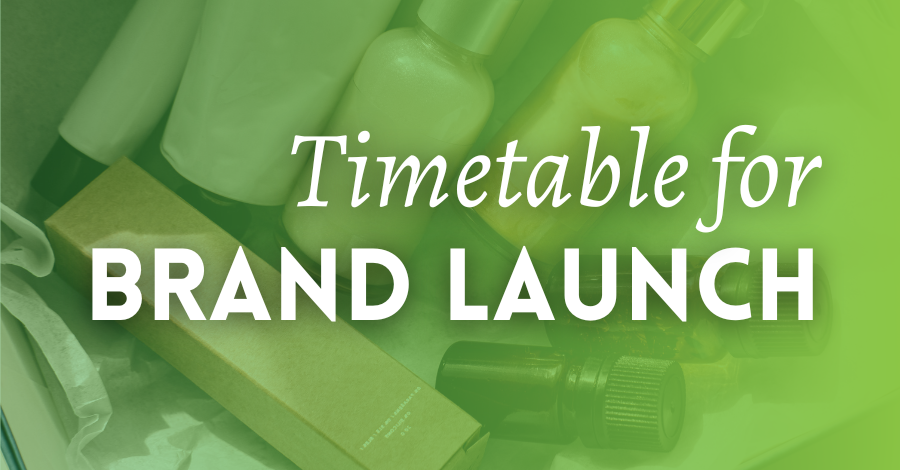
US-based graduate Sandra Velasquez launched her Mexican-heritage bath and body line Nopalera just as the pandemic started. Even with the uncertainty of the market and times, she set herself ambitious goals to get her business going as she needed to change her life, make money and create an income for herself and her young daughter. Sandra’s story is not only incredible but also a lesson in how to make things happen. Within two years of launch, she was raising finance, had won awards – both for her products and herself as an entrepreneur – and had been featured on leading US media channels.
Another graduate, Roshanne Dorsett of UK brand The Glowcery, did everything herself, from formulation to brand design, and managed to get her products to market in six months, as well as complete her Formula Botanica diploma at the same time. Both women had a clear vision of their brands, which helped keep them on a tight roadmap to launch.
Again, each entrepreneur faces a different situation across the world, but some fundamentals remain the same. You will need to lay the groundwork in terms of defining your brand mission, as this gives you the clarity to move forwards – and work faster. Even decisions on where to source ingredients, your brand’s target market and where to sell will fall into place faster with an overriding mission mapped out. However, do not skip the brand mission and vision stage in your haste to launch; otherwise, you may get stuck on small details (of branding in particular) if you do not have clarity about your aim in starting a cosmetics line.
For inspiration, see these podcast episodes and articles:
Podcast 91: Nopalera – the brand mission of indie founder Sandra Velasquez.
Podcast 107: Naughty Alchemist – graduate and indie brand story.
Podcast 15: Top 10 beauty branding tips
10 ideas to inspire your cosmetic formulations (and brand mission)
3. How many formulations do you intend to launch with?
Your favoured number of products for a launch range is three to five, although nearly as many of our respondents mentioned two to three products as ideal. There are pros and cons to launching with a greater or smaller number of products, which can be summarised as follows.
A hero product, or two, gets you to market faster and can help you establish your brand on a lower cost base. It can be an advantage to launch a single, stellar product with a clear unique selling proposition (USP), as you can test the market, focus on and get to know your customers and even revise a formulation based on their feedback. A smaller business is more manageable and easier to start at home with less financial outlay.
If you launch with a large range, you will have added expenses to cover up front as you buy a larger number of ingredients or have greater outsourced manufacturing costs. Not all products in your range may sell well, and you may be left with stock that is expiring.
A larger range does mean you can offer customers a complete beauty routine, and complementary products are ideal to bundle in discount offers and upsell. Retailers like to showcase brands with several products, so you may need to have a retailer strategy in place early on if you sell a range. A single product simply won’t show up on a store shelf.
Before plucking a random number out, think carefully about what you can handle financially and how you can best market a range – or a single hero product. You need to devise a brand storyline to support either route, as this will entice customers to buy and get you media attention. Again, we must stress that your brand mission and vision are key to determining the choice of products to have in a range or your decision to be bold and launch with a single or couple of products. For some retail strategy tips, see these articles:
6 ways to promote your beauty products
10 tips to attract retail buyers to your beauty brand
Start your natural and organic beauty business – step 12: retail strategy
4. Who is going to manufacture your formulations?

We covered outsourced manufacture earlier, but it’s worth adding that you need to consider not only how you will be manufacturing at the outset, but also how you will do so a year or two down the line. Your brand may grow faster than you think, and retailers will want assurances that you can supply them in a timely manner. It can take a considerable amount of time to find premises and adapt them for cosmetic manufacture. If you opt for outsourced manufacturing, you need to know that some firms may not be eager to take on a new brand or a start-up. You may need to pitch your brand and range to them.
Sarah Brown, CEO and founder of PAI Skincare explained in her podcast interview with us why she chose to keep manufacturing in-house; it gave her oversight of the quality of PAI’s organic ingredients and greater flexibility. Sarah also mentions how expensive it is to own your own manufacturing premises, especially with a brand that has become one of the major global players in green beauty.
We have seen many innovative ideas for home and artisan cosmetic labs. Our graduate, Stella Nisreen Kanaan, has a glass-sided floor in her salon premises in Copenhagen, housing her formulation lab. She wanted total transparency about how she works and created her space so clients could watch her in action formulating.
Boreal Folk Apothecary graduate and brand founder Raphaelle Gagnon ethically wild harvests ingredients, which are formulated in their mobile camper van workshop as they move around the wilds of Canada.
There are few limits to where and how you can formulate, so long as you do so safely, compliantly, to GMP standards and legally. A home lab can lower your start-up costs, but be aware that not all countries permit home cosmetic production for products placed on the market for sale. You need to inform yourself about your country’s laws regarding cosmetics manufacture and regulation and be well-versed in good manufacturing practice (GMP).
Beginner’s guide to setting up a home lab
Do you need a licence to sell skincare products?
Behind the scenes in our students’ labs
How to set up your artisan skincare lab
Start a small beauty business at home
5. Who will design your beauty brand?

You can DIY your brand, and you can pay very little for online graphic design services these days, but your brand needs more than just a logo and a few colours to make itself seen and appealing in a busy indie beauty market. A branding exercise starts with doing a lot of hard thinking about your mission and vision (the ethos that drives everything from your formulations to your marketing and attracts your target customers). As PAI Skincare founder Sarah Brown also said on our podcast, there is little point in existing to churn out yet another face oil unless you have a real point of difference in the market.
As we mentioned above, Sandra Velasquez of Nopalera spent a great deal of time on getting her brand mission defined. So strong was her mission to elevate Latino-heritage products that the look and feel of her branding fell into place as her designer grasped immediately what Sandra wanted to achieve with Nopalera.
Designing your brand is the last part of the branding stage in launching your beauty business. Whether you have the in-house capabilities in design or outsource, be guided by your mission and vision, and don’t skip the first stage – your deep dive into what drives your brand. Clarity is everything. These articles will help you determine what resources you need to invest in and will guide you through the process of defining your brand:
How to choose a name for your beauty brand.
Podcast 15: Top 10 tips on branding indie beauty businesses.
Podcast 16: Beginner’s guide to branding a beauty business.
Podcast 17: Working with a designer on branding your beauty business.
Podcast 91: Nopalera – the brand mission of founder Sandra Velasquez.
6. Where will you be selling your products?
Wisely, some 66% of our respondents said they would be looking to sell online and through retailers. We know that many start-up beauty entrepreneurs build beautiful websites to showcase their products and envisage a surge of online sales from day one. Selling direct to consumer from your website increases your profit as you are not paying retail, wholesale or distributor commissions. However, do not underestimate the skills, time and funds you need to get known online and build an email list of fans and loyal customers.
Many social media platforms are less effective in giving your brand exposure than they were even just a few years ago unless you are paying for online promotions, adverts, and so on. You need social media marketing and management skills to be visible, as you can’t rely on your brand suddenly going viral on the back of a few Instagram posts. Once your brand is on a social platform, expect to be bombarded by social media agencies and “influencers” wanting to help you get a vast number of likes, hits, and other metrics.
Is Tiktok right for your brand? Did you know that Instagram is now downplaying its shop features? As you can see, social media is a moving target. You may need to hire someone to help you navigate it in order to see its benefits in terms of product sales.
Getting into the right retailer can be the start of a mutually beneficial partnership. Whether you are thinking about local retailers or big city stores, you need to do your homework on them. Retail buyers are busy people and have tens of brands approach them, unsolicited, each week. To stand out, you need to figure out if their customers are a good fit and do your homework on the other beauty brands they stock.
If you get buyers’ attention, be prepared to create a brief pitch presentation, send them full-size products, and do your sums. They will expect you to be able to keep them stocked if your product proves in demand. There is a lot to learn whichever route you take to market, but learning the retail side of the beauty business is as fun and empowering as formulating. We’ve got plenty of help in these articles:
10 tips to attract retail buyers to your beauty brand.
Start your organic beauty business – step 12: retail strategy.
Podcast 36: How to pitch your beauty products to buyers.
6 ways to promote indie beauty products
7. Will you start your cosmetics line as a side hustle/small home-based business or do you aim to grow big fast?

Most indie beauty entrepreneurs do start a cosmetics line “at the kitchen table,” and 78% of our survey respondents said they were starting their businesses small and as a side hustle. Of course, you can move from part-time to full-time entrepreneur by growing organically over time. This is something women in particular have been doing for well over 150 years as we found out in our look at the history of the beauty industry and at the founders of some of today’s beauty conglomerates.
Some Formula Botanica graduates have seen their brands take off very quickly, as we discovered in our round-up of a phenomenal year of beauty award winners. Our advice is to carry out a similar exercise to the one you need to do on branding: plan ahead and think through where you see your brand going and your aspirations for both your business and personal lifestyle as a brand founder.
There are merits to keeping your brand as a small operation and to growing and going global, and each brand founder will have different goals. These links will help you plan yours when you start your cosmetics line:
Start a small beauty business (hear from some of our graduates about their experiences as small businesses.)
How to start a beauty brand on a small budget
10 steps to a beauty brand business plan
How to sell homemade cosmetics (this takes you through the compliance side)
How to start a cosmetics business at home
Leave us a comment
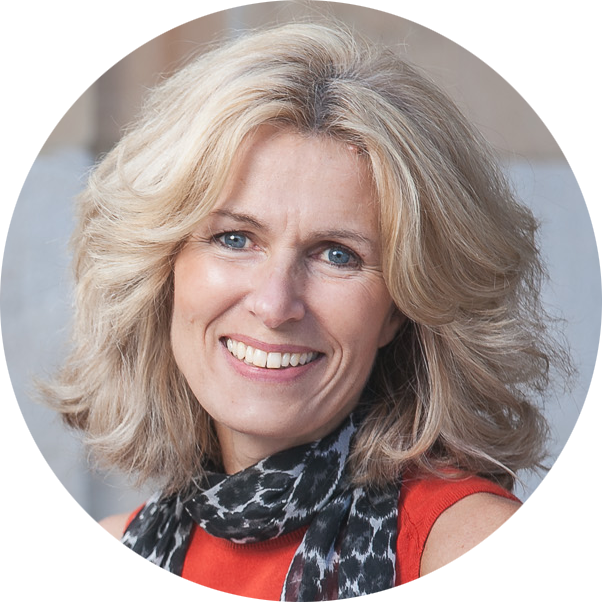
Liz was Formula Botanica’s Content Coordinator between August 2020-2024. Liz worked as a professional blogger, journalist and site developer for many years and was also part of the Formula Botanica student community. Read more about the Formula Botanica Team.

